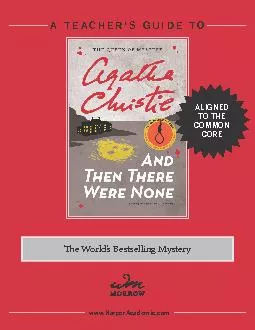PPT-During/after Reading Chapter
Author : lois-ondreau | Published Date : 2018-10-06
One Pages 1 amp 2 Jane was 5 years old She had a question Where does an egg come out of a chicken Do you know Where does a chicken have a hole in it big enough
Presentation Embed Code
Download Presentation
Download Presentation The PPT/PDF document "During/after Reading Chapter" is the property of its rightful owner. Permission is granted to download and print the materials on this website for personal, non-commercial use only, and to display it on your personal computer provided you do not modify the materials and that you retain all copyright notices contained in the materials. By downloading content from our website, you accept the terms of this agreement.
During/after Reading Chapter: Transcript
Download Rules Of Document
"During/after Reading Chapter"The content belongs to its owner. You may download and print it for personal use, without modification, and keep all copyright notices. By downloading, you agree to these terms.
Related Documents












![[DOWNLOAD] - Further Wellness Issues for Higher Education: How to Promote Student Health](https://thumbs.docslides.com/905510/download-further-wellness-issues-for-higher-education-how-to-promote-student-health-during-and-after-college.jpg)

